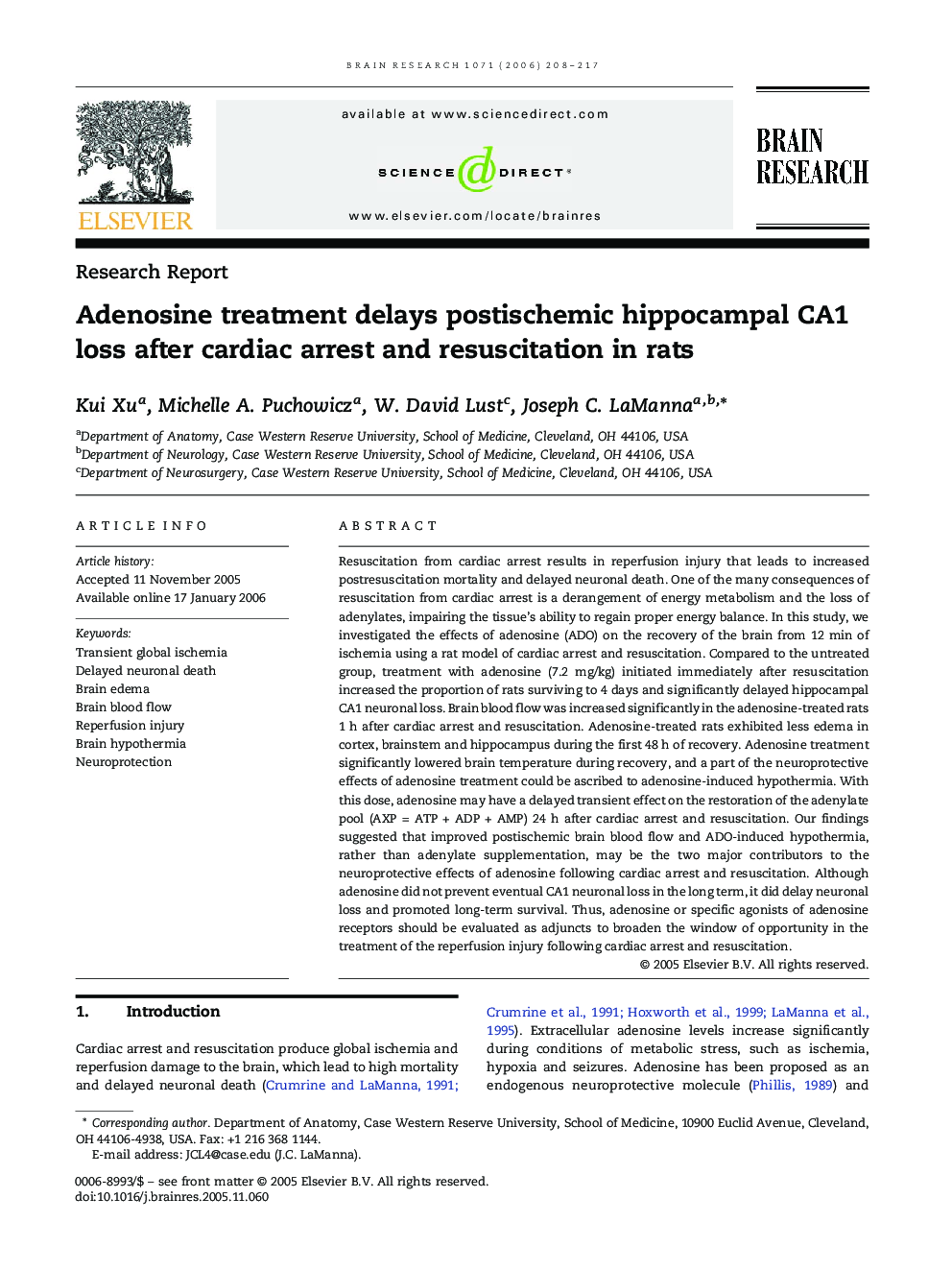| کد مقاله | کد نشریه | سال انتشار | مقاله انگلیسی | نسخه تمام متن |
|---|---|---|---|---|
| 4333404 | 1292930 | 2006 | 10 صفحه PDF | دانلود رایگان |

Resuscitation from cardiac arrest results in reperfusion injury that leads to increased postresuscitation mortality and delayed neuronal death. One of the many consequences of resuscitation from cardiac arrest is a derangement of energy metabolism and the loss of adenylates, impairing the tissue's ability to regain proper energy balance. In this study, we investigated the effects of adenosine (ADO) on the recovery of the brain from 12 min of ischemia using a rat model of cardiac arrest and resuscitation. Compared to the untreated group, treatment with adenosine (7.2 mg/kg) initiated immediately after resuscitation increased the proportion of rats surviving to 4 days and significantly delayed hippocampal CA1 neuronal loss. Brain blood flow was increased significantly in the adenosine-treated rats 1 h after cardiac arrest and resuscitation. Adenosine-treated rats exhibited less edema in cortex, brainstem and hippocampus during the first 48 h of recovery. Adenosine treatment significantly lowered brain temperature during recovery, and a part of the neuroprotective effects of adenosine treatment could be ascribed to adenosine-induced hypothermia. With this dose, adenosine may have a delayed transient effect on the restoration of the adenylate pool (AXP = ATP + ADP + AMP) 24 h after cardiac arrest and resuscitation. Our findings suggested that improved postischemic brain blood flow and ADO-induced hypothermia, rather than adenylate supplementation, may be the two major contributors to the neuroprotective effects of adenosine following cardiac arrest and resuscitation. Although adenosine did not prevent eventual CA1 neuronal loss in the long term, it did delay neuronal loss and promoted long-term survival. Thus, adenosine or specific agonists of adenosine receptors should be evaluated as adjuncts to broaden the window of opportunity in the treatment of the reperfusion injury following cardiac arrest and resuscitation.
Journal: Brain Research - Volume 1071, Issue 1, 3 February 2006, Pages 208–217